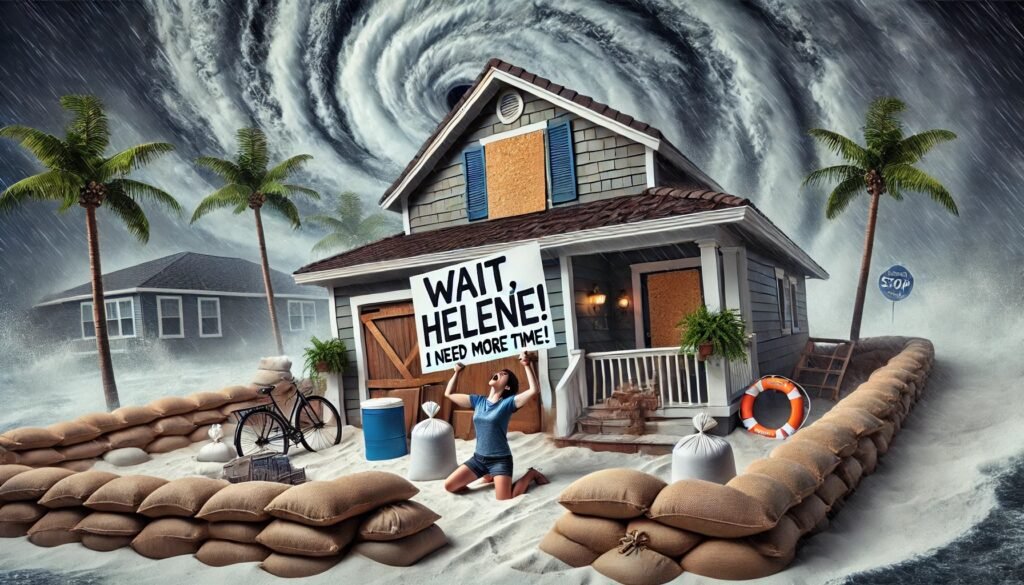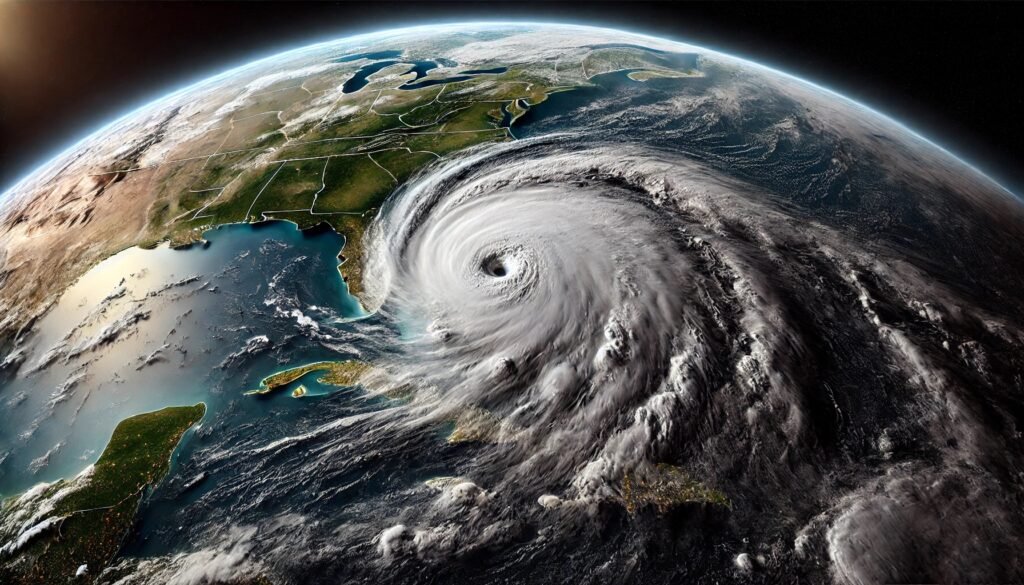Wait Helene! I need some time…
Florida’s 2024 hurricane season has been particularly intense, with storms like Hurricane Helene leaving a significant impact. As storms become more frequent and severe, it’s essential for homeowners to ensure their homes are prepared for future hurricane seasons. Whether you’ve faced damages this year or are looking to prevent them in the future, here’s a comprehensive guide to safeguarding your home against storms.
1. Reinforce Your Roof
Your roof is your first line of defense against hurricane-force winds and rain. Recent storm data has shown that homes with outdated or poorly maintained roofs suffered the most damage. To reduce the risk of roof failure:
- Install hurricane straps to secure the roof to the walls.
- Use wind-resistant shingles that can withstand gusts of up to 130 mph.
- Consider a secondary water barrier to prevent leaks if shingles are blown off.
- Tip: Regular roof inspections are key to spotting weaknesses before storm season hits(NOAA)(National Hurricane Center).
2. Install Storm Shutters or Impact-Resistant Windows
Windows are one of the most vulnerable points of any home during a hurricane. Protecting them should be a priority. You can:
- Install storm shutters that can be quickly deployed ahead of a storm.
- Upgrade to impact-resistant windows that are designed to withstand flying debris.
- Tip: If shutters aren’t an option, plywood boards can provide temporary protection during a storm(Florida Realtors).
3. Fortify Your Garage Door
Many homeowners overlook their garage door, but it’s often the weakest point of entry during a storm. A breach here can lead to catastrophic damage to the rest of your home. Consider:
- Reinforcing your garage door with a wind-load rated door that can withstand hurricane-force winds.
- Installing braces or retrofitting kits for extra support.
- Tip: Regularly check the door for any signs of weakness or rusting hardware(Florida Realtors)(Norada Real Estate Investments).
4. Trim Trees and Secure Outdoor Items
Flying debris causes much of the damage during hurricanes. Make sure to:
- Trim trees and shrubs regularly to minimize the risk of broken branches.
- Secure or store loose outdoor items such as patio furniture, garden tools, and grills, which can become dangerous projectiles.
- Tip: Before storm season starts, make a habit of clearing dead branches and securing any yard decor that could fly in strong winds(NOAA).
5. Secure Entryways
Doors are another vulnerable spot during hurricanes. To keep them secure:
- Install three hinges and a deadbolt lock for every exterior door.
- Consider reinforcing the door frame with heavy-duty materials.
- Tip: For double doors, a heavy-duty bolt or bar that secures the doors together can provide extra protection(Florida Realtors)(National Hurricane Center).
6. Check Your Home Insurance
Hurricane season is an ideal time to review your home insurance policy. Many homeowners learn too late that they don’t have adequate coverage for wind or flood damage. Make sure your policy covers:
- Hurricane damage: Verify whether your policy includes windstorm coverage, as some require a separate policy for this.
- Flood damage: Standard homeowners insurance doesn’t cover floods. If you live in a high-risk area, consider purchasing separate flood insurance.
- Tip: If you’re unsure, contact your insurer to confirm what’s included in your policy(Jimerson Birr).
7. Prepare a Hurricane Emergency Kit
No hurricane preparation is complete without a stocked emergency kit. Include:
- Non-perishable food and water for at least three days.
- Flashlights, batteries, and a portable phone charger.
- First-aid supplies and essential medications.
- Tip: Prepare a family communication plan in case you’re separated during a storm(Norada Real Estate Investments).
Conclusion
Preparing your Florida home for hurricane season is more critical than ever as storms grow in intensity. By taking proactive steps like reinforcing your roof, securing entryways, and installing impact-resistant windows, you can protect both your property and your family from the destructive forces of a hurricane. For more information on hurricane preparedness, visit Ready.gov or NOAA’s Hurricane Center for the latest updates.



